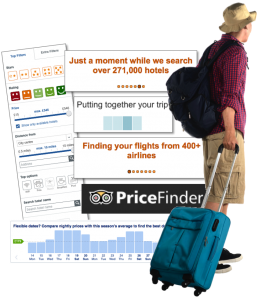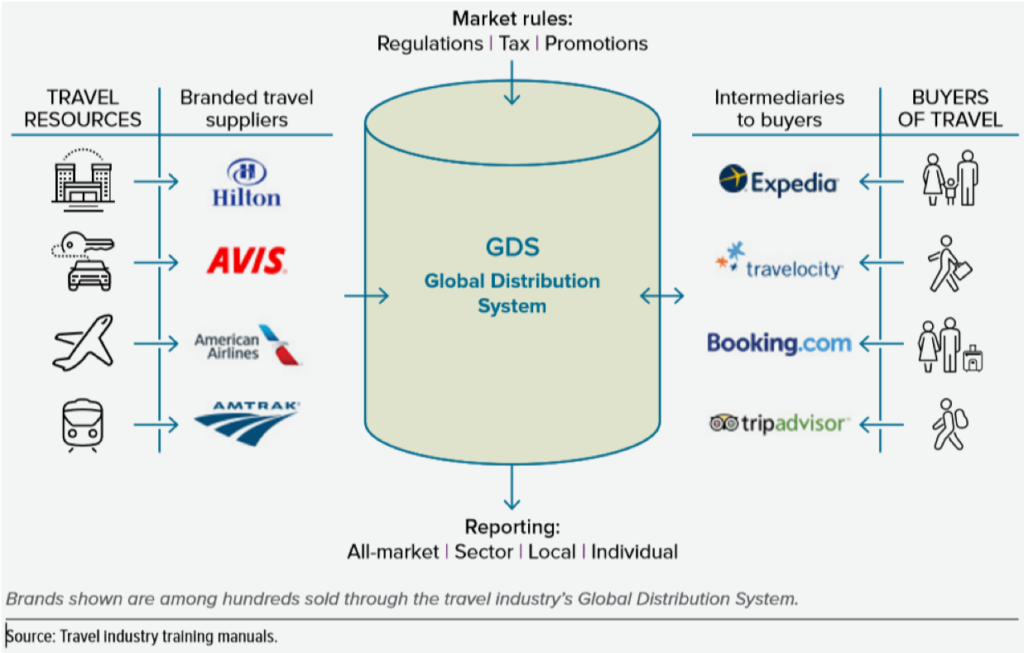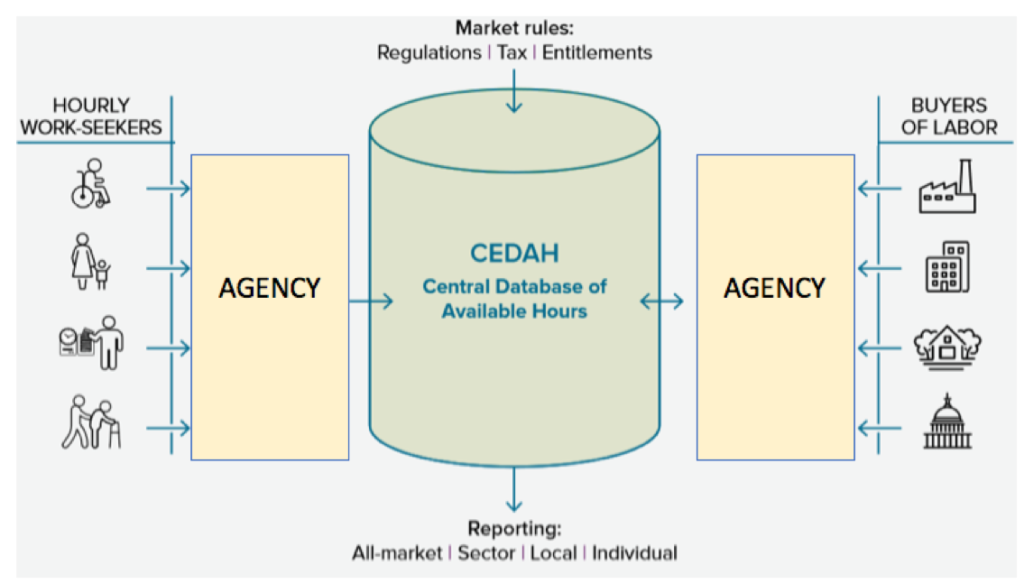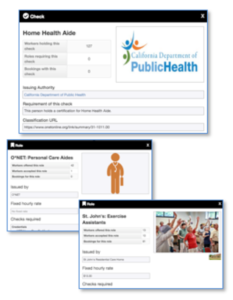[ezcol_2third]
 The easiest way to understand your CEDAH is to think about how we book travel online.
The easiest way to understand your CEDAH is to think about how we book travel online.
The CEDAH is a Central Database of Available Hours. It stores precise details of times each work-seeker wants to work; today, tomorrow or weeks ahead. It knows the skills, types of work and pay rates attached to each person. It has established their location and how far they will travel to a booking. Platforms for booking travel rely on this kind of detailed data to offer precise options.
What the CEDAH does
When you or a client enter a requirement, for example “I need a qualified childcarer at 4811 Plaza Drive, Long Beach, CA 90815 for two hours at 3PM today” it can instantly show everyone who’s eligible and how much each will cost. Booking your chosen person then takes only a few more seconds.
We recommend spending a few minutes watching our initial videos showing a CEDAH for the Los Angeles area in action. Click on on this image below to see a work-seeker interacting with a Los Angeles area CEDAH:
And click on this image to see the same system working for a client
You have likely experienced this kind of precision and responsiveness the last time you booked a vacation on the web or your phone. When the travel industry moved online, airlines, hotels and rental car companies created a deep database of their every flight seat, room and vehicle. The database knows when each is available and how it is to be priced. When we use sites like Expedia they are drawing on data from this underlying database.

That’s how Expedia can instantly tell you what rooms, seats and cars are genuinely ready for your trip and how much each will cost. The CEDAH works the same way, but in the much more complex market for people’s time.
The CEDAH can do all sorts of things on top of this But think of it as a sophisticated store of hours when people with different skills and aspirations can be booked to work. Your role as an agency staffer is deciding who to let in, making sure the market runs smoothly and making bookings yourself if asked by a client.
Core concepts
 There are five key concepts that you will encounter in the CEDAH. They are:
There are five key concepts that you will encounter in the CEDAH. They are:
- Agency: That’s your organization; the body that approved Clients and Workers to use the system and can oversee all their activity.
- Clients: These are the businesses, households, charitable bodies or public agencies who buy the labor of your workers.
- Workers: The individuals who offer their time and are booked for periods of work.
- Check: A datapoint about a worker used to match them with work such as a certificate they hold (“Registered LVN” would be an example) or a preference they have expressed (such as “I can lift loads up to 50lbs”).
- Role: A type of work that clients book workers to do. A role can be dependent on the worker having required checks. Roles can be general or specific to one client.
Your agency may use its own terms for “Clients” and “Workers”. If so, the CEDAH can use those words.
Further resources
⇒ Initial training video explaining the concepts behind a CEDAH.
⇒Your agency should have been given log-ins to a demonstration version of the CEDAH platform. Use them to create new records and make bookings as you wish. NOTE: Data pertaining to real people or organizations may not be entered in the demonstration system. Use fictitious clients and buyers only.
[/ezcol_2third] [ezcol_1third_end][/ezcol_1third_end]
